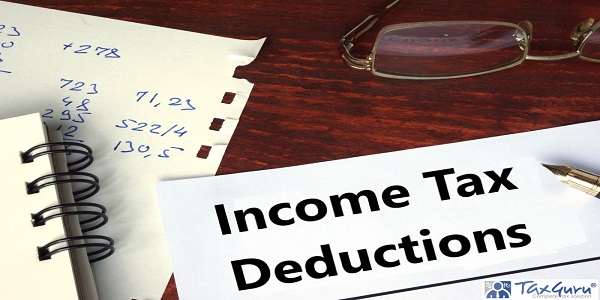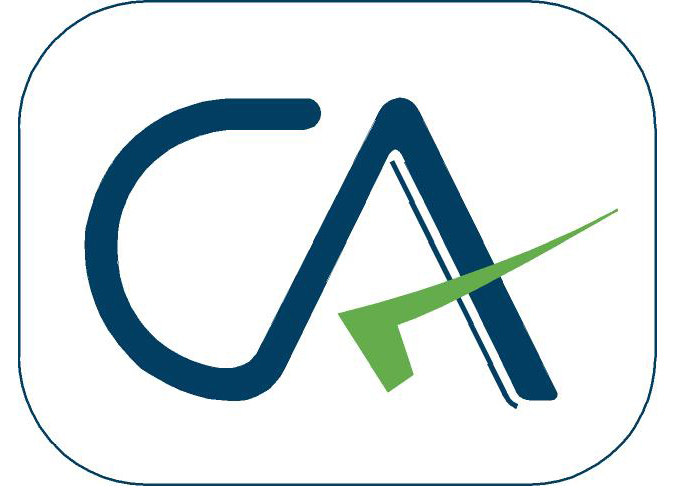Deductions are the relief provided by the government to taxpayers through which they can legally save their taxes through various platforms for e.g.- By investing their money, making allowable expenditures on which deductions are available such as Tuition fees for children, Donations made to the recognised institutions, Medical expenditures on self and dependents, Interest on home loan or Electric vehicle, Rent paid, etc.
What all can be the possible deductions with the help of which we can save our taxes to the lowest?

1. Deduction u/s 80C
This deduction is one of the most popular & easy way amongst all other deductions. It is available only to Individuals/ HUF on certain tax-saving investments or eligible expenditures. The maximum amount of limit is Rs.1,50,000/-. These are the following possible sources which one should utilize to its fullest while calculating income taxes:
- Public Provident fund (PPF)
- Life Insurance premium, or United Linked Insurance Plan (ULIP)
- Mutual funds
- Term deposits such as Fixed deposits, recurring deposits, post office term deposits (Min. lock-in period of 5 years)
- Bonds issued by NABARD
- Recognised Provident fund
- Sukanya Samriddhi Yojana
- Equity-linked saving scheme (ELSS)
- National pension scheme (NPS)
- National saving certificates (NSC)
- Tuition fee paid to schools, colleges, universities etc. situated in India up to 2 children
- Senior Citizens Savings Scheme
2. Deduction u/s 80D
This deduction is available to Individual/ HUF on premium paid towards medical insurance by mode other than cash.
The maximum amount of limit is up to Rs. 25,000/-, if the health insurance is for self, spouse & dependent children. And additional deduction of Rs. 25,000/- for parents of the assessee can be claimed; if the parents are aged less than 60 years. The limit of Rs. 25,000/- shall become Rs. 50,000/- if the age of parents and/ or taxpayers is 60 years or above.
Also, the cost incurred for preventive health check-ups can be claimed up to the limit of Rs. 5,000/- during the year. It can be made by any mode including cash.
3. Deduction u/s 80CCC
An individual can claim a deduction for the payment made towards certain pension plans. It is only available for premium paid for annuity plan of Life Insurance Corporation of India or fund referred to in Section 10(23AAB). Maximum amount of limit is Rs. 1,50,000/- (Aggregate of 80C, 80CCC, 80CCD(1)).
4. Deduction u/s 80CCD
1. Section 80CCD (1)- Contribution made towards National pension scheme (NPS) Account is allowable as deduction up to 10% of the salary (in case of an employee) & 20% of Gross Total Income (in case of a self-employed individual)
2. Section 80CCD(1B)- Additional deduction on the contribution made by the employee of up to Rs.50,000/- (over & above the limit of Rs.1,50,000/-) is allowed for the amount deposited to NPS Account (in case of salaried individual & self- employed)
3. Section 80CCD (2)- Additional deduction on the contribution made by the employer of up to 10% of the salary (Basic salary + Dearness Allowance). This deduction is only allowed to salaried individuals.
5. Deduction u/s 80GG-
This deduction is available in case an Individual assessee is not receiving any House Rent Allowance. It is available for the expenditure incurred towards the rent paid for his own residence to the extent least of the following-
- Rs.5000/- p.m.
- Rent paid minus 10% of adjusted total income
- 25% of adjusted total income
To avail the benefit of this section, the assessee is required to file a declaration in Form 10BA.
6. Deduction u/s 80DD-
This deduction is available to a resident individual/ HUF on expenditure incurred for medical treatment (including nursing), training & rehabilitation of a handicapped dependent person, a fixed deduction of-
- Rs.75000/-, if the disability is between 40%-80%
- Rs.1,25,000/-, if severe disability of 80% or more
To claim this deduction, a certificate of disability is required from the prescribed medical authority.
7. Deduction u/s 80DDB-
This deduction is available to resident individual/ HUF on expenditure incurred for medical treatment of a dependent suffering from a decease specified in Rule 11DD up to-
- Rs.40,000/- or amount paid, whichever is lower (aged under 60 years)
- Rs.1,00,000/- or amount paid, whichever is lower (aged 60 years or above)
8. Deduction u/s 80G-
This deduction is available to a person making donations to approved charitable institutions etc. up to 100% or 50% of the amount (with or without restrictions).
The donation above Rs.2,000/- made in cash shall not be allowable as a deduction.
Also, Name, Address & PAN of the donee are required to be submitted while filing the Income tax return.
9. Deduction u/s 80E-
Deduction is available to an individual for interest on loans taken from financial institutions or any approved charitable institutions for pursuing higher education for himself, spouse or children.
It is available maximum for 8 years beginning from the year in which the interest starts getting repaid.
10. Deduction u/s 80EE– Deduction is provided on interest part of the residential house property loan availed from a financial institution. A maximum of Rs.50,000/- can be claimed under this section. Conditions for availing this deduction are-
1. Loan has been sanctioned from the period between 01.04.2016 to 31.03.2017
2. Amount of loan sanctioned for acquisition does not exceed 35 Lakh Rupees
3. Value of residential house property does not exceed 50 Lakh Rupees
4. Assessee does not own any residential house property on the date of sanction of loan.
11. Deduction u/s 80EEA-
Deduction is available only to individual those are not eligible to claim deduction u/s 80EE on the interest part of the residential house property loan. Maximum amount of deduction can be claimed Rs.1,50,000/- (in addition to deduction of Section 24(b)). Following conditions are required to be satisfied to avail the deduction-
- Housing loan must be taken from a financial institution or a housing finance company
- Stamp duty value of the house property should be up to Rs.45 Lakhs
- Taxpayer should not own any residential house property on the date of sanction of the loan.
12. Deduction u/s 80EEB-
Deduction is available to the individual assessee for interest on loan taken for the purchase of an Electric Vehicle. It can be for personal purpose or business use. Condition for availing of this deduction is that loan must be sanctioned by the financial institutions from 01.04.2019 to 31.03.2023.
13. Deduction u/s 80GGB-
Deduction is available to Indian companies that contributes to political parties or an electoral trust. Amount contributed shall be the eligible deduction. Provided that contribution shall be made by mode other than cash.
14. Deduction u/s 80GGC-
Deduction is available to any person other than an Indian company (except local authority & artificial juridical person wholly or partly funded by the government) that contributes to political parties or an electoral trust. Amount contributed shall be the eligible deduction. Provided that contribution shall be made by mode other than cash.
15. Deduction u/s 80RRB-
Deduction is available to resident Individual patentee who has received income by way of royalty for a patent, registered on or after 1st April 2003. Deduction allowable is Rs.3 Lakhs or amount received, whichever is lower. The assessee must furnish a certificate in Form No. 10CCE duly signed by Controller General of Patents, Design & Trade Marks.
16. Deduction u/s 80TTA-
Deduction of up to Rs.10,000/- on interest income earned by Individual/ HUF from Saving Bank, Post office saving Account, or Co-operative Bank. This deduction is not available for interest earned on Term deposits (such as Fixed deposits, Recurring deposits).
17. Deduction u/s 80TTB-
Deduction of up to Rs.50,000/- on interest income earned by senior citizens from deposit in Bank, Post office or Co-operative bank. Also, this deduction is available for interest earned on Term deposits as well.
18. Deduction u/s 80U-
The deduction is available to resident individual with disability. Deduction is allowable up to-
- Rs.75,000/- if disability is 40%- 80%
- Rs.1,25,000/- if severe disability i.e. 80% or more
Assessee is required to furnish a copy of the certificate issued by the medical authority.
Other common exemptions available to salaried individuals other than Deduction u/s 80C to 80U-
Standard Deduction- Standard Deduction of Rs.50,000/- or salary income, whichever is lower
House Rent Allowance– Section 10(13A) provides an exemption of least of the following-
- Allowance actually received
- Rent paid in excess of 10% of the salary
- 50% of Salary (in metro city)/ 40% of Salary (non- metro city)
Children Education Allowance- Rs.100/- p.m. per child for up to 2 children
Hostel Allowance- Rs.300/- p.m. per child for up to 2 children for hostel expenditure
Leave travel concession– Travel expenses incurred on himself or his family within India, the actual amount incurred for journey performed given by the employer can be claimed as exemption. This can be availed only in respect of two journeys performed in a block of four calendar years
Conveyance & transport Allowance– Exempt up to Rs.1,600/- p.m.
Interest paid on home loan- Section 24(b) provides exemption of up to Rs.2 Lakhs on interest paid on home loan taken for acquisition, construction, repair, renew or reconstruction of house property. Purchase or Construction shall be completed within 5 years from the end of financial year in which capital was borrowed. For claiming deduction under this section, person must be the owner of the house property and loan should be in his name.
Disclaimer: The contents of this article are for information purpose only and do not constitute an advice or a legal opinion and are personal views of the author. It is based upon relevant law and/or facts available at that point of time and prepared with due accuracy & reliability.


















Hi Ankita,
i am a salaried person and also want to start a small business.
how can a business will impact on my tax calculation. means i got salary which is taxable and now i want to start a business parallelly.
how can my business expense’s help to save my taxes which are from salary + business??
regards
Vikram
i am salaries persons , my salary deducted pm care covid-19 one day salary. i have filed the income tax return . therefor i guide the the same amount which account may be filed and give me details of the same
Yes, Donation made to PM care fund for Covid 19 from any of your Bank A/c is fully eligible for deduction u/s 80G.
Nice article mam its very helpfull to us thank you…
Thank you. For any query/ suggestions, feel free to reach me at ankitajainca12@gmail.com
very detailed and helpful article
Thank you. For any query/ suggestions, feel free to reach me at ankitajainca12@gmail.com
Hey Ankita…gud1 yr …this itself includes the complete details for deductions n really helpful..vry nice..keep it up👍🏻
Thanks Vijeta. You may use the information in your practice & share with others.
Artical is very helpful for any taxpayers
In case of any doubt, feel free to reach me at ankitajainca12@gmail.com
Finally got a sum up of all the deductions with such a short and accurate details. Really helpful.
Keep it up…
Thank you so much Neha. In case of any doubt, feel free to contact me- ankitajainca12@gmail.com
So deduction under section 80CCD is over and above threshold limit of ₹150,000?
Deductions under section 80CCD(1B) & 80CCD(2) are over & above Rs.1,50,000/-
as available u/s 80C, 80CCC & 80CCD(1)
For any clarification, feel free to contact me- ankitajainca12@gmail.com